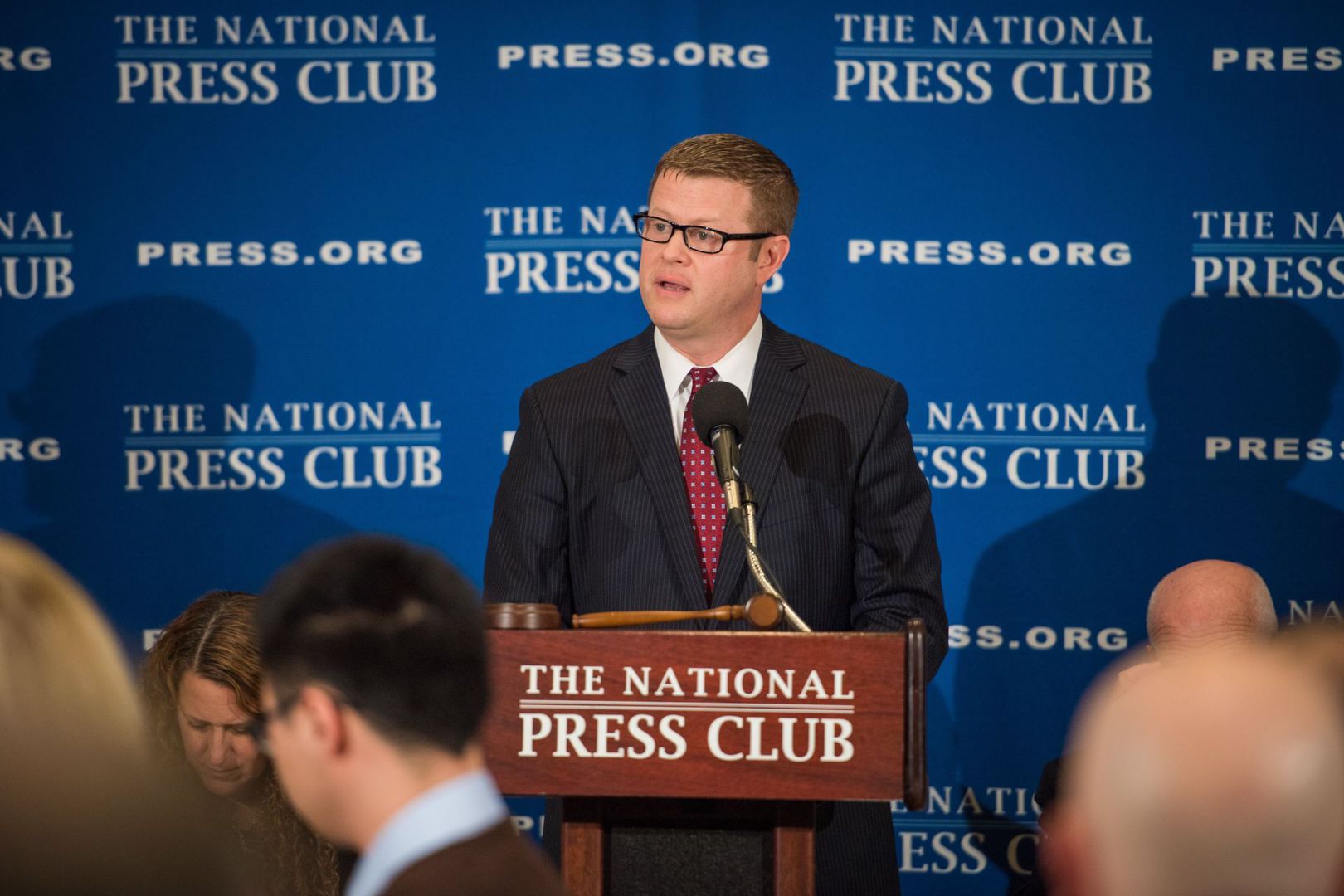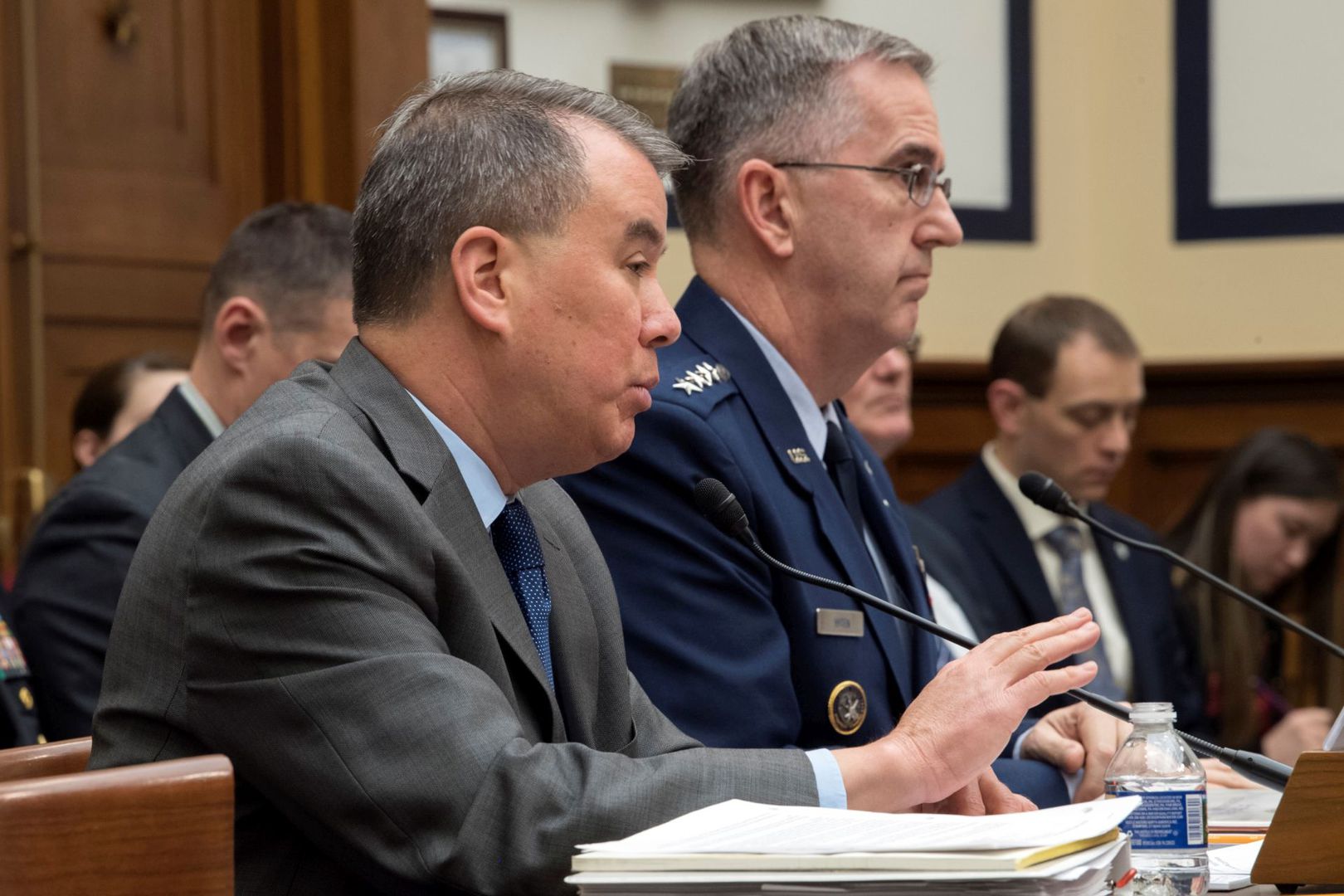Army leaders have issued a full list of programs eliminated or reduced during the latest “night court” review, designed to help fund modernization priorities amid the Fiscal Year 2021 budget request.
In all, more than $1.2 billion was freed from legacy programs throughout the Army, with more than $868.9 million from 39 reductions, and $324.1 million from 41 eliminations, according to an official document released Friday.
An additional $9 billion is projected over the next five years in the Future Years Defense Program — or FYDP — as a financial reservoir for the force’s cross-functional teams in the Army’s six modernization pushes.
The modernization efforts include Long-Range Precision Fires, the Next-Generation Combat Vehicle, Future Vertical Airlift, Tactical Network, Air and Missile Defense, and Soldier Lethality.
This year was “much more tepid than last year” — when the Army set aside more than $30 billion, said Secretary of the Army Ryan McCarthy, at the National Press Club Friday. “Most of the programs were not as complex as last year.”
“The [fiscal 2021] budget of $178 billion will ensure the Army will remain the most lethal ground fighting force in the world now, and in the future,” McCarthy said, although the fiscal fallout is $2.2 billion less than the fiscal 2020 budget.
The full list of cuts — released shortly after McCarthy’s press club speech — mainly whittled down smaller totals from multiple programs, including $1.4 million held back on nine FIM-92 Stinger anti-aircraft missiles and more than $303,000 saved from six non-lethal M102 reloadable grenades.
Further slashes from the lists include more than $3.4 million in lasers, $4.8 million in armor protection kits, and $1.6 million in defense cyber tools, among other programs.
That said, a few larger items saved funding. The M2 Bradley upgrades took the most substantial cuts. About $222 million was saved by reducing M2 Bradley upgrades.
More than $122 million was saved by eliminating the Advanced Precision Kill Weapon System.
“When failure occurs, we are committed to making critical decisions early in the process and use the knowledge gained toward capability success,” McCarthy said.
“We treat taxpayer dollars like we treat our ammunition, every bullet counts and it’s aimed at the target,” McCarthy said. “The demand for Army forces paired against a flat budget has forced tough fiscal decisions.
“To finance our modernization ambitions, we implemented reform to build and maintain readiness, continue transformation, modernization, and support real-world operations,” he added.
In addition to “night court,” efficiency reforms are also underway to track down additional savings, said Lt. Gen. Thomas Horlander, assistant to the secretary of the Army for financial management and comptroller, at a breakfast hosted Tuesday by the Association of the U.S. Army.
Although the last two “night court” reviews were difficult, Horlander warned, “Really difficult decisions are on the horizon” as the Army begins to field new equipment throughout the decade.
Ahead of those decisions, the Army’s reinvested funds are enabling prototypes for robust testing — unlike where the force was 10 to 20 years ago, McCarthy said.
“Ten years ago, we were buying billions of dollars over PowerPoint,” he said, adding that today’s prototypes are “flying, exploding, and driving. You can smell the gasoline.”
Many of the prototypes live up to leaders’ expectations, and the prioritization of how to scale them across the Army “is where the real challenges are going to be,” McCarthy said. “We have prototypes that are out there flying.”
“[The Army is] showing progress in all modernization efforts,” Horlander said, regarding the 31 signature programs under the Army’s six modernization priorities. “We cannot have just some of them. They are all integrated, and they are all necessary to conduct multi-domain operations and large-scale combat operations.”
With regard to Future Vertical Lift, the Black Hawk replacement demonstrations have two competitors already vying for a contract, McCarthy said, with numerous flight hours logged — already 160 hours and more than 70 hours, respectively.
“Precision fires are our No. 1 modernization priority,” McCarthy said. “In [fiscal year 2021] we are investing over $800 million in hypersonics alone to support accelerated development, flight testing and initial unit fielding and training to deliver our first hypersonics-capable operational unit ready to deploy by [fiscal year 2023.]”
These priorities align with the 2018 National Defense Strategy, as the Army’s drive to modernize warfare with the emergence of near-peer competitors, like Russia and China.
Horlander said the freedom of the United States depends on the Army’s ongoing modernization efforts.
“We want to be the best in the world with that all these capabilities,” McCarthy said. “America has a perfect record of predicting incorrectly the next war we’re going to be in. So we’ve got to make sure we can beat everybody — and whoever that’s going to be — if they try to challenge us, we will win.”











